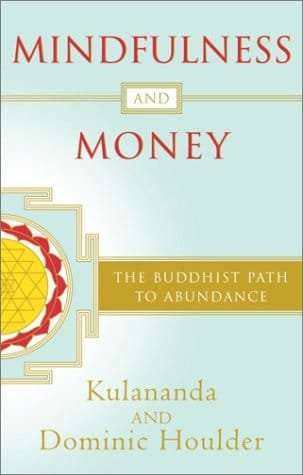SPECIAL REPORT SACRED WEALTH
Top 10 Money Insights from 7 World Religions You Can’t Afford to Ignore
Intro | Christianity | Islam | Hinduism | Buddha | Shinto | Sikhism | Judaism | Conclusion

PART 5: Here are the TOP 10 Practical insights from the words of the Buddha to transform your relationship with money
Buddhism also known as Buddha Dharma, is an Indian religion and philosophical tradition based on teachings attributed to the Buddha, a wandering teacher who lived in the 6th or 5th century BCE. It is the world’s fourth-largest religion, with over 520 million followers, known as Buddhists, who comprise seven percent of the global population
In a world dominated by consumerism, financial stress, and the relentless pursuit of wealth, the ancient wisdom of the Buddha’s teachings offers a refreshing perspective.
Rooted in the Tripitaka, the foundational scriptures of Buddhism, these insights can transform not only how we think about money but also how we live our lives.
Here are 10 Tripitaka-inspired secrets to achieving financial freedom:
1. Mindfulness in Spending
The Buddha emphasized mindfulness in every action. Apply this principle to your finances by being fully aware of your spending habits. Ask yourself: Do I need this, or am I seeking fleeting pleasure? Mindful spending helps you avoid waste and aligns your purchases with your values.
2. The Middle Way in Budgeting
Buddha taught the Middle Way—a path of balance between extremes. In financial terms, this means avoiding the extremes of frugality and extravagance. Create a budget that balances saving, spending, and giving.
3. Right Livelihood
The Noble Eightfold Path includes Right Livelihood, which advises earning a living in a way that does not harm others. Pursue work that aligns with your principles and contributes positively to society. Financial freedom is more fulfilling when achieved ethically.
4. Detachment from Materialism
The Buddha’s teachings warn against clinging to impermanent things. Recognize that wealth and possessions are temporary and should not define your worth. This detachment helps reduce stress and fosters a healthier relationship with money.
5. Generosity as a Wealth Multiplier
In Buddhism, dāna (generosity) is a virtue. Sharing your resources, whether through donations or acts of kindness, creates positive karma and a sense of abundance. Generosity enriches your spirit and often opens doors to unexpected opportunities.
6. The Law of Cause and Effect (Karma)
Karma reminds us that our actions have consequences. Apply this to your financial life: manage debt responsibly, invest wisely, and avoid reckless financial behavior. Good financial karma comes from deliberate, thoughtful choices.
7. Impermanence and Financial Resilience
The concept of anicca (impermanence) teaches that everything changes, including financial circumstances. Build resilience by diversifying your income streams, saving for emergencies, and staying adaptable to life’s uncertainties.
8. Contentment Over Consumerism
The Buddha taught santutthi (contentment), which encourages finding joy in what you have rather than seeking more. Cultivate gratitude for your current financial situation, and you’ll discover that true wealth lies in simplicity and sufficiency.
9. Mindful Wealth Accumulation
Accumulating wealth is not inherently bad, but the Buddha’s teachings remind us to do so mindfully. Avoid greed and consider the impact of your financial goals on your well-being, relationships, and the environment.
10. Meditation for Financial Clarity
Meditation fosters clarity and focus. Use it as a tool to reflect on your financial goals, reduce anxiety about money, and make decisions from a place of calm rather than fear or impulse.
 Purchase “Mindfulness and Money: The Buddhist Path to Abundance” on Amazon.com
Purchase “Mindfulness and Money: The Buddhist Path to Abundance” on Amazon.com
Conclusion
By applying these Tripitaka-inspired principles, you can cultivate a healthier relationship with money and achieve true financial freedom.
Remember, financial success is not just about accumulating wealth but living a balanced, ethical, and meaningful life. Let the wisdom of the Buddha guide your journey to abundance, both materially and spiritually.
 Read The Complete Special Report Here
Read The Complete Special Report Here
 The Punk Rock Prophet Joe Strummer from THE CLASH once said, “Without people, you’re nothing.” This profound insight could just as easily reflect the true value of money when considered in the context of humanity.
The Punk Rock Prophet Joe Strummer from THE CLASH once said, “Without people, you’re nothing.” This profound insight could just as easily reflect the true value of money when considered in the context of humanity.
Charles Bivona Jr., aka Coach JP Money, is a business strategist, financial coach, and founder of CoachJPmoney.com. A lifelong entrepreneur, he launched his first real estate deal at 17 and went debt-free by 1998. Since then, he has built national media brands, advised small businesses, and helped clients grow online using smart strategy, digital tools, and creative grit.
An expat living in Baja, Mexico, Charles also writes and produces music as Johnny Punish and lives off-grid at Hacienda Eco-Domes, a sustainable retreat he built with his wife. Through providing small business services, coaching, writing, and podcasting, he’s on a mission to help others win their future—on their terms.
Read his full bio at PunishStudios.com >>>
Post Views: 145